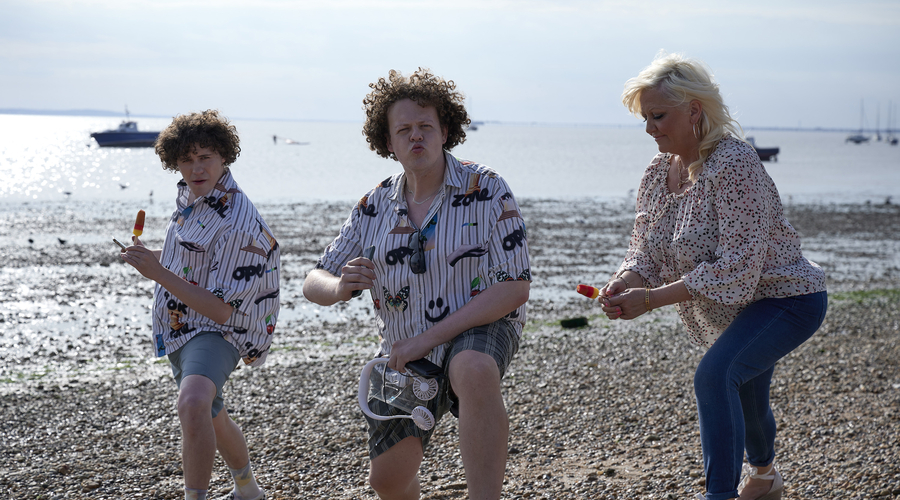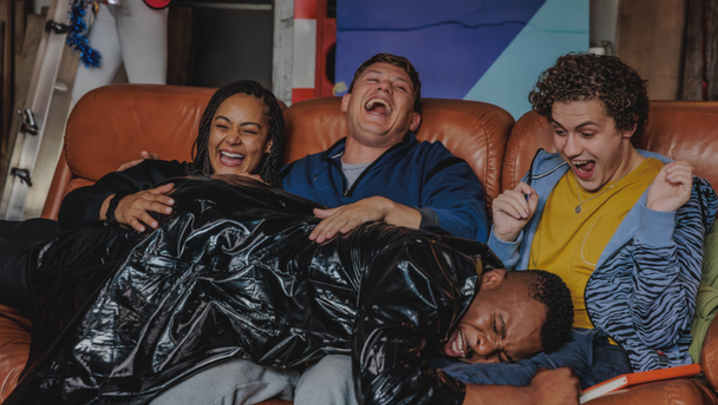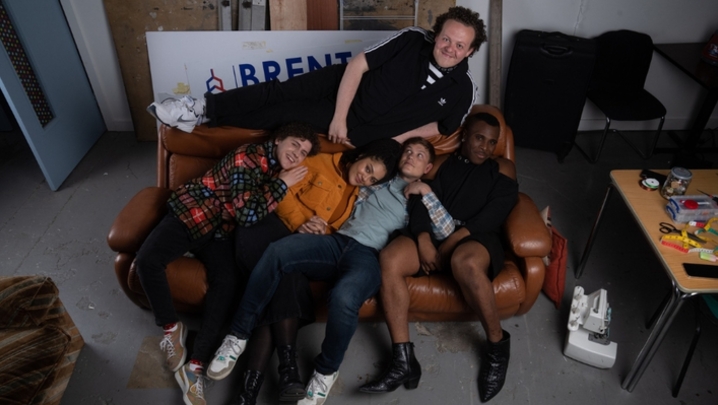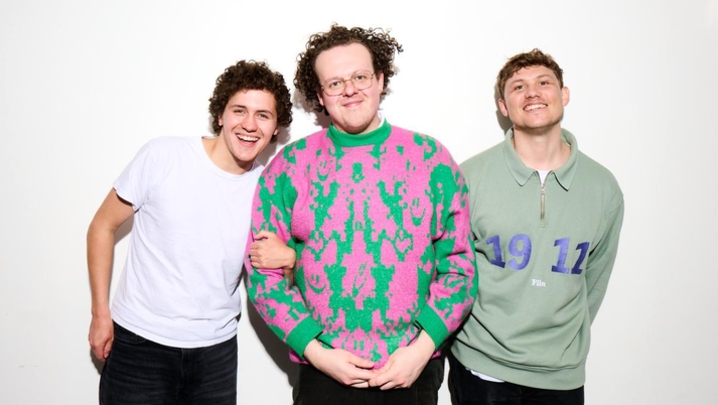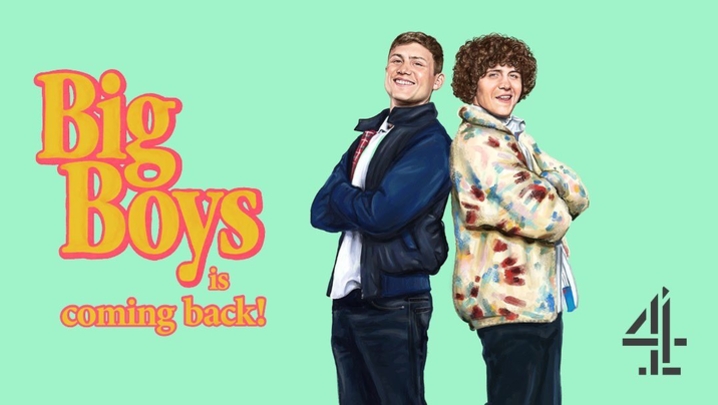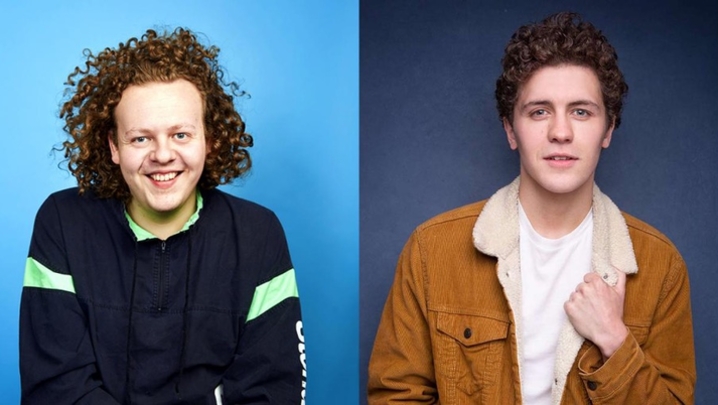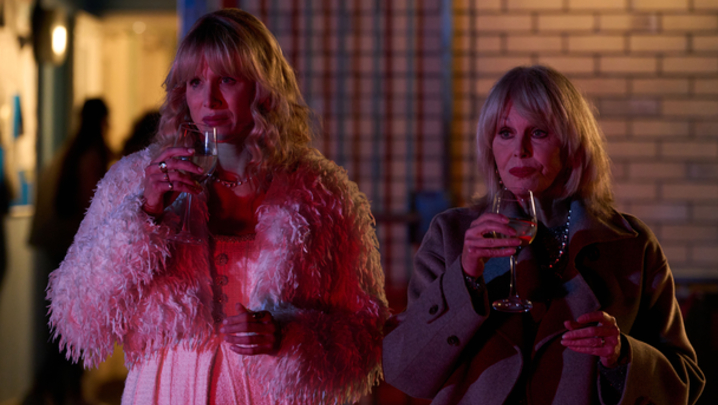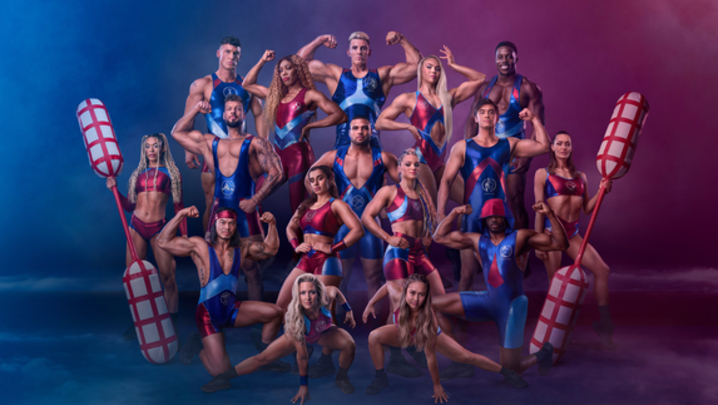There are no regency wigs or coal-dusted flat caps in this period piece, instead, students clad head-to-toe in ASOS are raving to ‘One’ by Swedish House Mafia.
It’s 2013, and the characters in Jack Rooke’s new sitcom Big Boys are navigating the first night of freshers at a typically terrible student bar. Apologies to any millennials horrified to hear their recent university experience described as a period piece, but Rooke’s sharp observations of early 2010s British culture are viscerally transportive to those halcyon days of Tumblr, Cherry Sourz and Darude’s ‘Sandstorm’.
The semi-autobiographical series sees comedian and writer Rooke narrate his time as a fresher at Brent university, having spent a year at home with his mum Peggy (Camille Coduri, Doctor Who) grieving the loss of his father. Derry Girls star Dylan Llewellyn plays Jack, “because if you can’t cast yourself as someone better looking in your own life story then what’s the point?” Rooke quips in his wry narration.
Alongside the riotous depiction of student life, the series explores grief, sexuality, and mental health through the eyes of two unlikely best mates: the shy, closeted Jack and the laddie extrovert Danny, played by Jon Pointing (Plebs).
The subject matter is undoubtedly weighty, but if comedy is tragedy plus time, it’s no surprise that Rooke, who lost his father to cancer at 15 and his best friend to suicide at 21, delivers a series as hilarious, absurd, and big hearted as Big Boys.
The only one in his family to go to university, Jack is thrown in at the deep end with a series of eye-opening firsts: his first hook-up, his first gay club, his first time meeting someone so posh they’ve never owned a microwave.
The writer describes being a fresher as the most vulnerable thing in the world. “You're trying to figure out who you are. Everyone's judging one another,” he says. “We're only 18. We’re all children still, but we're getting absolutely rat arsed and eating crap pasta and shagging one another. It’s the closest I think I'll ever get to being on Big Brother.”
With Izuka Hoyle as the no-nonsense Corinne, Olisa Odele as the supremely confident Yemi, and Katy Wix with a standout performance as the perennial Students Union officer Jules, the stellar ensemble cast make up a charming rabble of misfits.

(credit: Channel 4)
The central friendship between a gay guy and his straight best friend is one that has been given little representation on TV. Based on three of Rooke’s straight friends, one of whom took him to his first ever Pride, Danny supports Jack through his tentative first steps into the queer community, from chaperoning him to a Grindr hook-up to researching what ‘QIA’ stands for. “I’ll basically watch anything with Rylan in it, so I’m the flipping Ally Lama,” Danny jokes.
Worryingly, Rooke reflects that when he came out in 2012, he was met with arguably a more progressive culture than we have today. “I do think the last few years have been particularly vicious, with this weird culture war where people from minority backgrounds or people who are anything that is slightly different to the norm are under attack” he says.
As a result, straight allyship has never been more essential. “Especially in the current culture of debates about LGBTQ people all the time, what we need is some straight men to be fucking good and be willing and prepared to go the extra mile and do the research,” Rooke says.
'We need shows that are geographically specific to this weird little island we live on'
Episode two sees the gang head to a gay club, ‘Gordy's’, named after Rooke’s friend Gordon ‘Gordy’ Maxwell, a TV producer he met in the gay clubbing scene who sadly passed away a few years ago. “He, to me, was the perfect human embodiment of ‘welcome all’. He used to do lots of different queer nights around London and he'd be like ‘straight guys - no acting up, in you fucking get’. That thing of being like, you can still come in, we still want you, we still need you, we still need that allyship and love and support, but don't play up, I think is the loveliest metaphor for the open mindedness and love and spirit in a lot of the live queer community.”
While Danny offers invaluable support to Jack as he explores his sexuality, he silently shoulders problems of his own, and Pointing’s outstanding, tender depiction of the pain behind the bravado will break your heart. The series locates itself in a time when conversations around mental health were still relatively taboo, and while a decade of campaigns has helped reduce the cultural stigma, Danny’s struggle with mental health service bureaucracy and waiting lists still resonates today.
“The biggest part about Danny's character is he has all these complexities and there's an undercurrent that we don't find out about, but he still puts on a bit of a brave front,” Rooke explains. “I know a lot of men who still do that, especially in my friendship group. Some of it is a defence mechanism and it’s what the show is about.”
“There will be viewers out there who have had a friend or a loved one who's going through depression, and all that hope and fear and love and support and frustration and pain that you ride with that person, I really wanted that to come through in the narration,” Rooke continues.
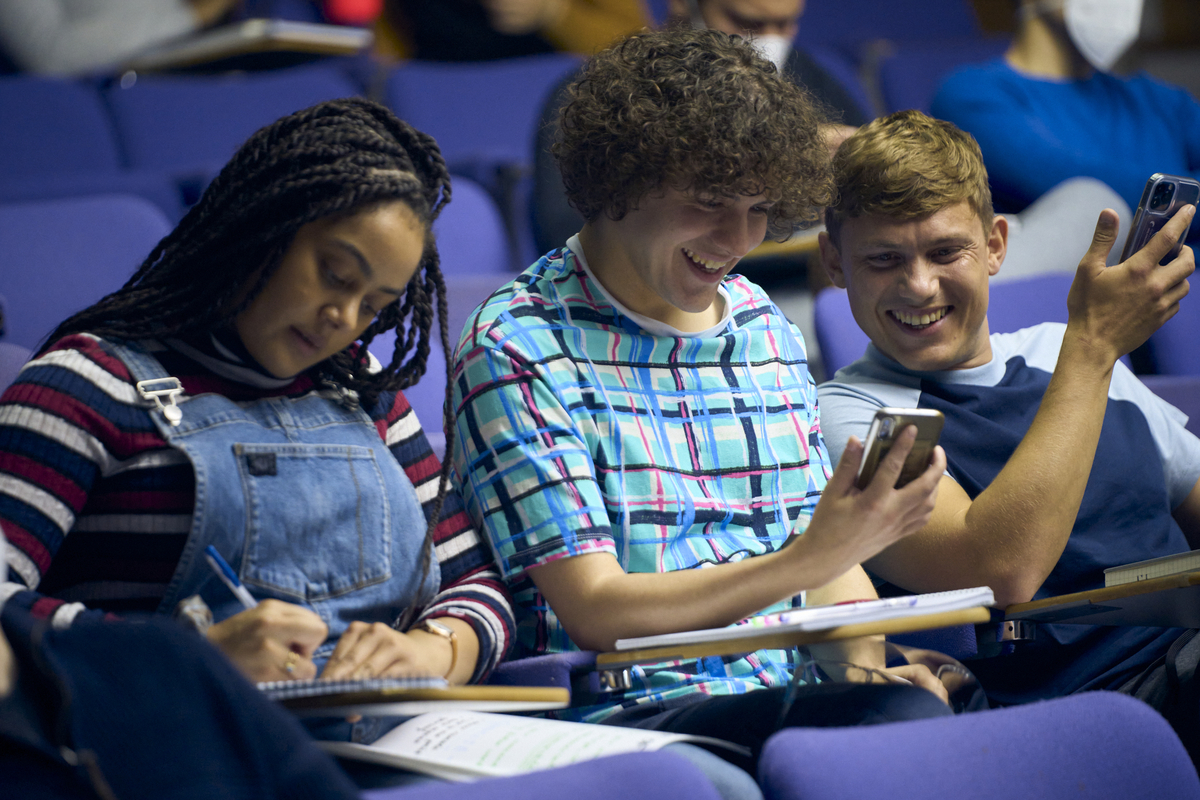
(credit: Channel 4)
“I think it is scary sometimes and it's hard to know how best to support people. What I hope Big Boys does, and what my work does overall, is help people feel more comfortable knowing how to support people, and help people feel less awkward. These things can be funny, and they can be celebratory, and they can be silly.”
Indeed, Big Boys is delightfully silly. As a pop-culture obsessive and lover of Huns, Rooke’s scripts are bursting with jokes characteristic of the camp, quintessentially British subculture, from a fish named Alison Hammond to cheeky slights against daytime TV’s Eamonn and Ruth.
“I think it's a really exciting time to have a show that has that many British pop culture references, especially when a lot of television is being made for an international audience. We need shows that are geographically specific to this weird little island we live on,” Rooke says of Big Boys. “There’s such a lovable thing about the regional differences that we have in this country that help TV be really honest and authentic and reflect particularly working-class life as well."
The writer argues that such specific references could only have found a home on Channel Four, which champions weirdness and diversity while platforming regionally specific stories that aren’t told elsewhere.
Just as mass audiences found unexpected recognition in the lives of teenage girls in trouble-torn Derry (Derry Girls), Big Boys further proves that the more specific the story, the more universal the comedy.
Who knew one of the most joyous, funny and relatable shows of the year would be the coming-of-age tale of a grieving, gay, working-class Watford teen? Thank goodness for Channel 4.
Big Boys airs weekly on Thursdays on Channel 4 at 10pm, with the full series available to watch now on All4.

